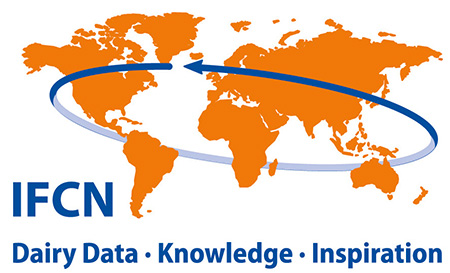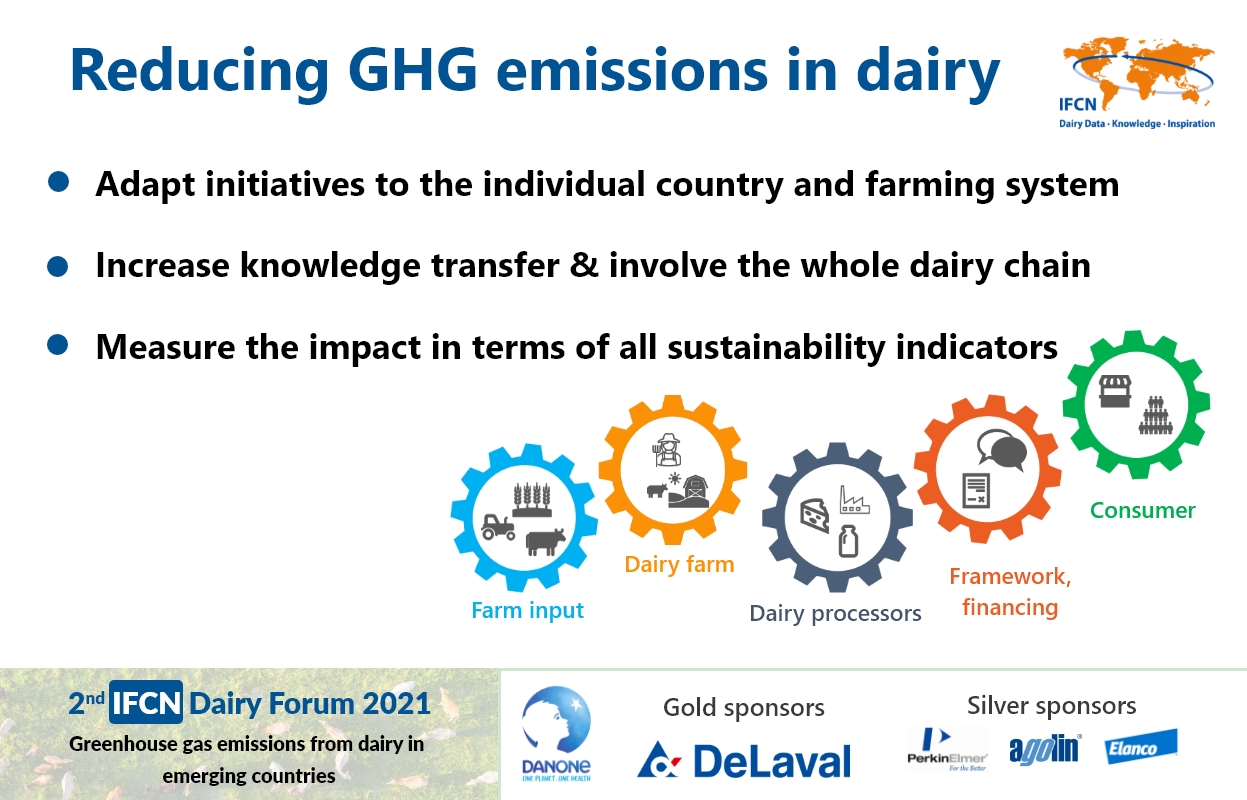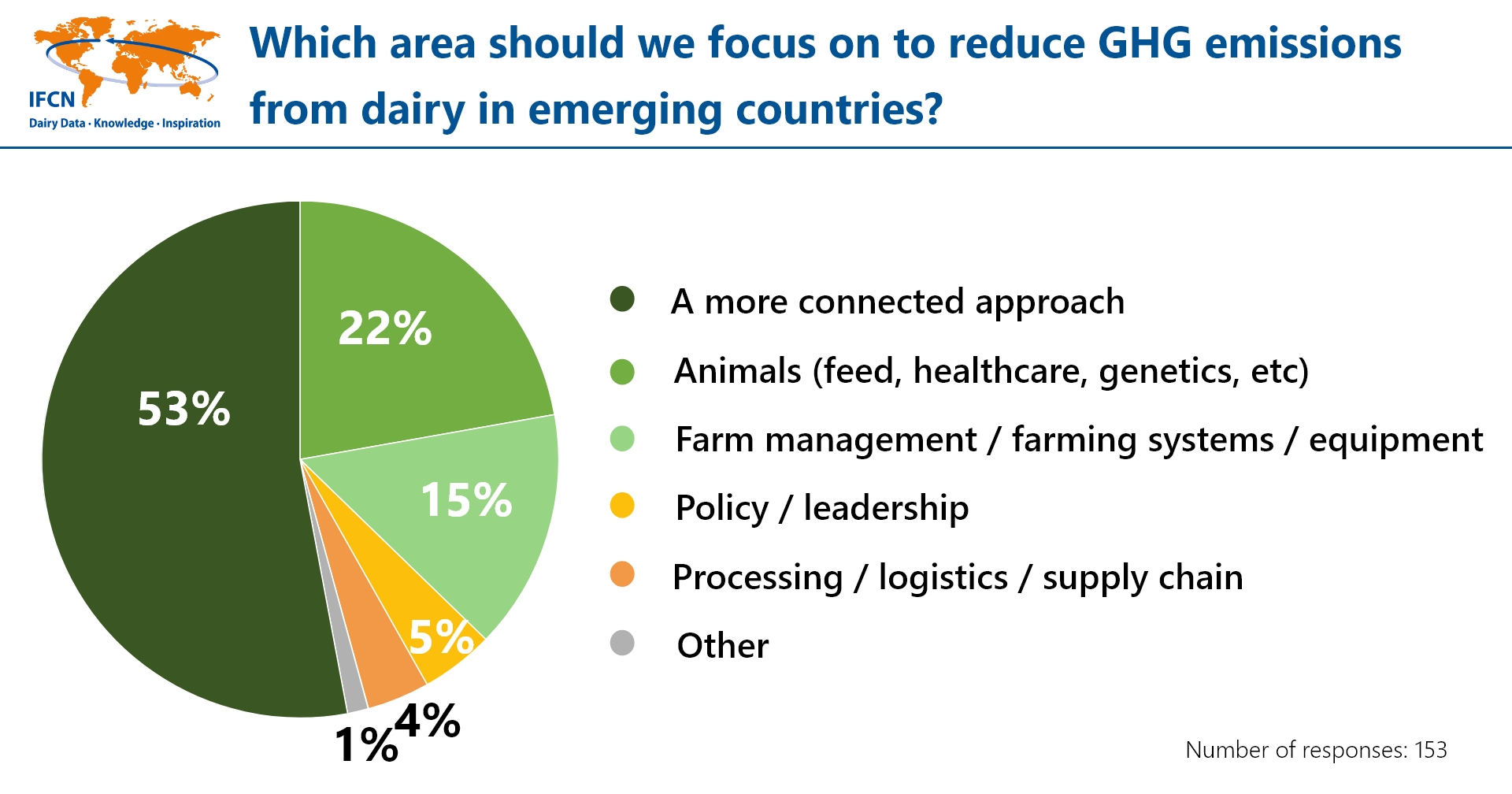Pathways to address GHG emissions from dairy in emerging countries
Download the press release
Get access to the video
IFCN Product List & Services
The 2nd IFCN public IFCN Dairy Forum brought together people from 85 countries with different backgrounds to discuss greenhouse gas (GHG) emissions from dairy with a special focus on emerging countries.
The topic of reducing GHG emissions in dairy is complex. Donald Moore from the Global Dairy Platform says: “Apart from the good that dairy does, the sector recognises its responsibility to address the impact on the natural environment that we are operating in.”
To put it into perspective: The dairy sector is responsible for 2.2% of global GHG emissions, and the intensity of emissions is decreasing. However, total emissions are set to increase. This is mainly due to lower productivity in smallholder farming systems in emerging countries, which account for 75% of global emissions from dairy. Given that emerging markets will be home to a growing population and in line with this, growing dairy demand and production, this trend will only intensify in the future. At the same time, emerging countries are often disproportionately affected by the consequences of climate change and face greater challenges in terms of investments and food security.
With this event, IFCN put a focus on initiatives that can be part of a solution to increase productivity and profitability and by doing that, contribute to lower emissions. Measuring the impact of these mitigation strategies at the farm level is critical to further progress. With its methodology, IFCN is able to provide this information taking into account all sustainability indicators.
The panellists agreed that it takes a holistic and tailored multi-stakeholder approach to engage with smallholders to increase their efficiency and also their social welfare. This could increase not only farmers’ incomes but also reduce emissions. At the same time, it is crucial to adapt strategies of e.g. health, animal nutrition and genetics to the specifics of different farming systems and their environments. One solution won’t fit all farming systems, and it is important to take into account the social and cultural role that cattle play in many non-Western societies. Additionally, training and knowledge will be just as important as suitable financing strategies and access to capital and farm input resources.
These arguments were also mirrored by the other participants of the event. The polls found that around 53% of people believe that a more connected approach leads to more success compared to individual initiatives and that training and knowledge sharing will be key in the future. It is also noteworthy that the majority of the participants regards the goal of reducing emissions intensity in emerging countries by -30% to a milk yield of 2.1 kg CO2eq./kg milk by 2030 as realistic, compared with a level of 3.0 kg CO2eq./kg milk in 2020.
In the end, it is important to set the right priorities and to create synergies rather than conflicting goals with regards to food security for example. IFCN sees its contribution in providing a clearer picture of the status quo and, in cooperation with its extensive networks, analyse the three aspects of sustainability at farm level.
IFCN would like to thank all panellists, sponsors, partners, researchers, and guests for their valuable contributions.
Contact us





